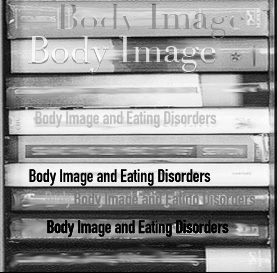Dieting
has become common and normalised in our society with many of us having an unhealthy or disordered relationship with food. Studies indicate that up to 82% of the population is ‘sometimes’ or ‘very often’ on a diet.
Our culture has been brainwashed into thinking that ‘ultra-thin’ is equal to beauty. In the course of history, this is a relatively recent phenomenon. At many points in history, natural curves, and in fact being very curvy, were regarded as normal and to be admired, as it is in many cultures today, other than our own.
As a result of our current emphasis upon thinness the dieting industry has exploded. What we often don’t consider is that the growth of the dieting industry has been so rapid, because of the dieting failure rate – ie diets don’t work. 95% of dieters regain their lost weight. The 5% of ‘successful dieters’ are generally found to be successful because they have adopted a new lifestyle of healthy eating and exercise rather than have stuck to their diets.
Why Do Diets Fail?
A typical diet begins with a wish to lose weight – it might be for a special occasion where we want to look our ‘best’, but more often there is a striving to adjust our body weight to match that of images of very thin models or celebrities that we see in the media. We imagine that if we can only look like them, then we will feel happier, be able to wear the clothes that we want, be more attractive to others and to ourselves, and be able to enjoy our life more.
A typical diet ends when we have achieved our goal weight or when we are no longer able to sustain the diet regime that we began.
Dieting failure occurs as a result of the body and mind reacting to what it experiences as a state of semi-starvation. When energy intake (calories) are restricted, the body’s metabolism naturally slows down in an attempt to conserve energy, resulting in calories being burned at a slower rate.
At the beginning of a diet, the body loses water and muscle mass, as it is not possible for the body to burn fat tissue at a fast rate.
The mind becomes preoccupied with thoughts of food and the craving for sweet, energy high foods increases. Sustaining a diet is difficult as our bodies are designed to fight weight loss to ensure our survival from the threat of starvation.
When we stop dieting the urge to over eat is common as our body attempts to restore itself to a state of balance and typically we regain the weight we have lost, or our weight increases beyond our pre-diet weight. This may lead to feelings of discouragement and failure where we blame ourselves for having insufficient willpower, setting up a cycle of ‘yo-yo’ dieting that may ultimately damage our overall health or lead to serious eating disorders such as anorexia, bulimia, and binge eating.
Getting Off the Dieting Roundabout
If you would like to get off the Dieting Roundabout and for more information about Body Image and Mindful Eating, please contact Diana.

